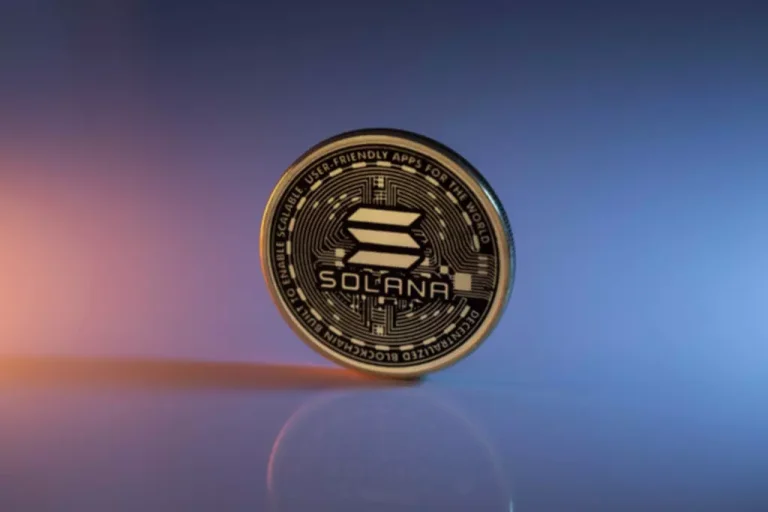Content
Public blockchain networks typically allow anyone to join and for participants to remain anonymous. A public blockchain uses internet-connected computers to validate transactions and achieve consensus. Bitcoin is probably the most well-known example of a public blockchain, and it achieves consensus through “bitcoin mining.” As we blockchain payments look ahead, it is clear that blockchain technology has the potential to revolutionize peer-to-peer nonprofit funding in profound ways. The increasing demand for transparency and accountability among donors will likely drive more organizations to explore blockchain solutions as a means of enhancing trust and engagement. Furthermore, as more successful case studies emerge, we can expect to see a growing interest in adopting these technologies across the nonprofit sector.
What is a blockchain payment system?
Whether you’re a beginner embarking on a journey of discovery or a seasoned professional harnessing its intricate nuances, Blockchain has the capacity to revolutionize your endeavors. The future of Blockchain is an exciting journey that holds immense promise for transforming industries and reshaping the way we conduct transactions. With its secure, transparent, and tamper-proof nature, Blockchain technology is poised to revolutionize various sectors such as finance, healthcare, supply chain management, and government. Its potential applications are Yield Farming vast, offering a new paradigm for secure and efficient operations. Blockchain is reshaping the payments landscape by providing secure, faster, more transparent, and cost-effective solutions.
Building trust through Blockchain’s transparent and tamper-proof nature
Blockchain creates an audit trail that documents the provenance of an asset at every step on its https://www.xcritical.com/ journey. In industries where consumers are concerned about environmental or human rights issues surrounding a product—or an industry troubled by counterfeiting and fraud—this helps provide the proof. Your data is sensitive and crucial, and blockchain can significantly change how you view your critical information.
How confident are you in your long term financial plan?
All participants have a copy of the ledger, enabling direct verification and faster settlement. Donors can track how their contributions are utilized, ensuring accountability and reducing the risk of fraud. Blockchain payment systems are used for cryptocurrencies, supply chain management, cross-border transactions, and facilitating micropayments and peer-to-peer transactions.
Blockchain Applications and Use Cases
Compare this to a centralized record-keeping system that could be compromised if an individual did something to the central authority where records are kept. IPwe uses IBM Blockchain and AI to create a transparent global patent market, helped by IBM to increase visibility and flexibility. The Home Depot implements IBM Blockchain technology to resolve vendor disputes and improve supply chain efficiency.
Laws and regulations differ not just across nation-state borders but often within them. All banks have legacy IT systems, and transitioning to blockchain requires considerable time and resources. Compatibility and standardization issues further complicate integration, as the World Bank has found with its attempts at blockchain-based bonds. While some of the top cryptocurrency exchanges are, indeed, based in the United States (i.e. KuCoin or Kraken), there are other very well-known industry leaders that are located all over the world. For example, Binance is based in Tokyo, Japan, while Bittrex is located in Liechtenstein.

By automating these functions, nonprofits can reduce administrative burdens and focus more on their core activities. This not only allows donors to track how their contributions are being used but also helps organizations demonstrate their commitment to ethical practices. As nonprofits increasingly adopt blockchain technology, they can leverage its capabilities to enhance their operational efficiency and build stronger relationships with their supporters. With generative AI, they can produce phishing messages and deep-fake videos to steal data and money. However, AI can also be used for fraud detection as companies are training AI models to predict and neutralise threats in real time.
As technology continues to evolve, nonprofits that embrace these changes will be well-positioned to thrive in an increasingly competitive landscape. Several nonprofits have already begun to harness the power of blockchain technology for fundraising purposes, demonstrating its potential for transforming the sector. One notable example is BitGive Foundation, which was established to facilitate charitable giving through Bitcoin donations. BitGive has developed a platform that allows donors to contribute directly to various projects while providing transparency through real-time tracking of funds on the blockchain. By leveraging blockchain technology, nonprofits can facilitate direct transactions between donors and recipients without relying on intermediaries. This streamlined approach not only reduces costs but also accelerates the flow of funds to where they are needed most.
Regulatory bodies are still figuring out how to oversee these new financial systems, often focusing on anti-money laundering and user identification. Businesses must prioritize staying up-to-date on evolving regulations and adapting their systems accordingly to avoid penalties and ensure smooth operation. Legal recognition of smart contracts, integral to many decentralized payment systems, is an evolving aspect of blockchain regulation. Some jurisdictions have taken steps to recognize smart contracts as legally enforceable.
It has more potential to take the fintech market to the next level with different technological integrations. It has increased the crypto lending platforms market that allows users to earn interest on their lending assets or access loans using crypto as collateral. It reduces the time needed to process and confirm payments, making verification quicker and reducing settlement times. Thus, businesses must take prior action and integrate technology to secure digital assets and sensitive data. It may be owned and serviced by one organization or a collaboration of organizations, so in that sense, it is more centralized than public chains but potentially less centralized than private ones. Select participants granted access to the chain may “read and write” on the chain and give access to other participants.
Blockchain nodes can be any kind of electronic device that maintains copies of the chain and keeps the network functioning. This immutability is part of creating transparency across the network and a trustworthy record of all activities on the blockchain. Using a smart contract, the terms of the mortgage—such as payment schedules and conditions, can be encoded into the blockchain. Once the conditions are met, such as timely payments and verification of property ownership, the smart contract automatically executes the next steps, such as transferring ownership or releasing funds. The accessibility provided by blockchain and banking extends beyond geographical boundaries. It also includes people who may face barriers due to disabilities or other limitations.
- No participant can change or tamper with a transaction after it’s been recorded to the shared ledger.
- Providers with parent companies in high-risk countries for anti-money laundering or non-cooperative jurisdictions for tax purposes must implement enhanced checks aligned with the EU AML framework.
- It ensures that all parties involved have a clear and accurate view of each transaction, fostering greater trust and accountability.
- These developments suggest blockchain is poised to play a pivotal role in shaping the future of the digital economy.
Additionally, blockchain supports the use of crypto wallets, which enable users to store and manage digital currencies easily. This technology offers a decentralized approach, making financial services more accessible and reliable. These benefits highlight the potential of blockchain technology to transform payment systems and create more efficient, secure, and inclusive financial ecosystems. By leveraging blockchain in payments, businesses and individuals can streamline transactions, reduce costs, increase trust, and expand their reach on a global scale. One of the key features of blockchain in banking is its transparency and immutability. Every transaction recorded on a blockchain is visible to all participants in the network and cannot be altered retroactively.
Everledger’s system tracks the provenance of diamonds from the mine to the customer, which helps to prevent the sale of conflict diamonds. In PoW, miners compete to solve complex mathematical puzzles, expending computational resources in exchange for the chance to add new blocks to the Blockchain. This consensus mechanism not only verifies transactions but also acts as a deterrent against malicious activities, as modifying a single block would require an immense computational effort.

In the event of contamination, you can trace the food back to its source in seconds rather than days. Different blockchains, like islands with their own languages, struggle to communicate. This lack of interoperability creates hurdles for businesses trying to integrate with various blockchain systems, driving up costs. Imagine if every email provider used a different language – information exchange would be impossible. Blockchain payment systems use consensus algorithms to verify transactions and store them on a decentralized ledger, ensuring transparency and security. As you navigate the future of financial transactions, understanding and leveraging the power of blockchain payment systems could be paramount.
